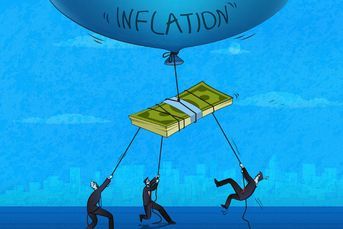Reform bill passage signals end of Wall Street ‘joyride’: Harry Reid
The U.S. Senate approved a bill that imposes restrictions on proprietary trading by banks and creates a consumer protection agency
The U.S. Senate, bringing Congress to the brink of passing the most comprehensive regulation of the financial industry since the Great Depression, approved a bill that imposes restrictions on proprietary trading by banks and creates a consumer protection agency designed to prevent lending abuses that triggered the housing collapse and the worst unemployment in almost three decades.
The legislation, approved by a 59-39 vote yesterday and requiring reconciliation with a bill passed by the House of Representatives in December, provides a mechanism for liquidating financial institutions, until recently considered too big to fail, a council of regulators monitoring threats to the economy and specific restraints on the trading of so-called derivatives, which spawned the toxic debts that seized up the credit markets in 2007 and 2008 and prompted the Federal Reserve to make trillions of dollars of loans to banks on the brink of insolvency.
“When this bill becomes law, the joyride on Wall Street will come to a screeching halt,” Senate Majority Leader Harry Reid, a Nevada Democrat, said after the vote.
Prohibiting financial institutions from trading derivatives — contracts whose value is derived from stocks, bonds, loans, currencies and commodities, or linked to specific events such as changes in interest rates or the weather — is especially controversial and opposed by Wall Street lobbyists and by some regulators, including Fed Chairman Ben S. Bernanke. The proposed consumer protection bureau, which the Senate has placed inside the Fed, would have powers to write and enforce rules banning lending considered abusive.
$150 Billion Fund
House Financial Services Committee Chairman Barney Frank, the Massachusetts Democrat who shepherded a financial-overhaul bill through his chamber last year, said in an interview yesterday that he intends to make sure final legislation has a free-standing Consumer Financial Protection Agency, reflecting President Barack Obama’s original proposal.
Negotiators will have to reconcile differences over a pre- paid $150 billion fund created by the House bill to cover the government’s cost of unwinding a failing financial firm. The Senate bill requires the industry to repay the government only after a company collapses. Frank said yesterday he wouldn’t push to keep the industry-financed pre-paid fund in the bill.
“The two bills are very similar, and the House is ready to go to conference to work out the remaining issues,” Frank said in a statement. “I am confident that we can have a bill ready for President Obama’s signature very soon.”
Wall Street Bailout
Congressional Democrats moved to change regulation of U.S. financial companies after taxpayers provided $700 billion in emergency loans to rescue the insurer American International Group Inc., mortgage lenders Fannie Mae and Freddie Mac, and Citigroup Inc., following the forced takeover of Bear Stearns Cos. by JPMorgan Chase & Co. and the collapse of Lehman Brothers Holdings Inc., the biggest bankruptcy in U.S. history.
The unprecedented bailout of Wall Street was the culmination of the worst housing market since the 1930s, precipitated by so-called subprime mortgages, which were packaged by Wall Street derivatives specialists into toxic fixed-income securities, known as collateralized debt obligations, and sold to investors worldwide. After credit markets froze in 2007, the unemployment rate in the U.S. surged to 10.1 percent during the next two years from 5 percent before the recession began. It remains at 9.9 percent.
‘Hardly Perfect’
Senate Banking Committee Chairman Christopher Dodd, a Connecticut Democrat, said the bill is “hardly perfect” and will be improved in the House-Senate negotiations.
Dodd said he planned to consider strengthening language to ban proprietary trading by U.S. banks. The issue was raised in an amendment offered by Democrats Jeff Merkley of Oregon and Carl Levin of Michigan that wasn’t considered during debate of the bill on the Senate floor.
Dodd said he wants to present a revised bill to the Senate before July 4.
Republicans criticized the Senate bill, saying it failed to deal with government-sponsored enterprises Fannie Mae and Freddie Mac, which were seized by the government in 2008. The Republicans also said the consumer financial protection bureau the bill would establish amounts to a massive new bureaucracy.
“We hope that we have a conference where we all are participants and that we’re dealing with trying to reconcile the bill section-by-section and come out with a good piece of legislation, but we’ll have to see about that,” Senator Richard Shelby, the banking committee’s top Republican who voted against the bill, said about the House-Senate talks.
‘Section-by-Section’
Senate Republicans largely stuck together in opposing the bill. Four voted with the Democrats, including Senator Charles Grassley, who became the first Republican to break ranks when he voted for the derivatives bill in committee.
“It was important and essential to engage in fundamental reform of financial institutions at this moment,” Senator Olympia Snowe, a Maine Republican who backed the bill, told reporters after the vote. “The American people have to have the confidence that we’re rectifying many of the issues that really contributed to putting our economy on the precipice.”
The Obama administration welcomed the vote.
“The House and Senate have now each passed strong bills that protect consumers, limit risk-taking by large institutions and address the problem of ‘too-big-to-fail,’” Treasury Secretary Timothy Geithner said in a statement.
Obama’s Outline
The Senate measure adopts priorities Obama outlined last June for strengthening financial rules. It allows the Federal Deposit Insurance Corp. to take apart failing financial firms in an orderly way if their collapse could threaten the economy.
The legislation would push most of the $615 trillion in over-the-counter derivatives to be processed, or cleared, with a third party.
The derivatives language, offered by Senate Agriculture Committee Chairman Blanche Lincoln, also contains one of the most contentious issues of the Senate debate — the measure that would require commercial banks to wall off their swaps-trading operations.
Learn more about reprints and licensing for this article.








